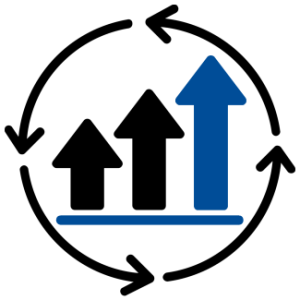In the ever-evolving landscape of healthcare, technological advancements have brought about significant changes in the way patient information is managed and healthcare services are delivered. Informatics is revolutionizing healthcare through the power of information technology and data analysis to improve patient care, enhance operational efficiency, and drive innovation. In this blog post, we will explore the role of healthcare informatics in revolutionizing the healthcare industry, highlighting its benefits and applications.
Revolutionizing Healthcare: Informatics
Healthcare informatics, also known as health informatics or medical informatics, is the intersection of healthcare, computer science, and information technology. It involves the acquisition, storage, retrieval, and use of healthcare data to support decision-making, facilitate communication, and improve healthcare outcomes. The field encompasses a wide range of technologies, such as electronic health records (EHRs), clinical decision support systems (CDSS), telemedicine, and health data analytics.
technology. It involves the acquisition, storage, retrieval, and use of healthcare data to support decision-making, facilitate communication, and improve healthcare outcomes. The field encompasses a wide range of technologies, such as electronic health records (EHRs), clinical decision support systems (CDSS), telemedicine, and health data analytics.
Improving Patient Care with Healthcare Informatics
Healthcare informatics plays a crucial role in enhancing patient care through various applications:
- Electronic Health Records (EHRs): The adoption of EHR systems enables healthcare providers to access comprehensive and up-to-date patient information, promoting continuity of care and reducing medical errors. By having a centralized repository of patient data, healthcare professionals can make informed decisions and provide personalized treatment plans.
- Clinical Decision Support Systems (CDSS): CDSS utilizes healthcare informatics to provide healthcare providers with evidence-based recommendations, alerts, and reminders at the point of care. These systems help improve diagnostic accuracy, identify potential drug interactions or allergies, and assist in creating tailored treatment plans.
- Telemedicine and Remote Patient Monitoring: Healthcare informatics enables remote patient consultations and monitoring through telemedicine platforms. This technology enhances access to care, particularly for individuals in remote areas or with limited mobility. It also allows healthcare professionals to monitor patients’ vital signs and health parameters in real-time, ensuring early intervention and proactive care.
- Precision Medicine and Personalized Healthcare: Healthcare informatics plays a pivotal role in the advancement of precision medicine, where treatments are tailored to an individual’s unique characteristics, including genetic makeup, lifestyle factors, and medical history. By analyzing vast amounts of data, healthcare informatics helps identify patterns, predict disease risks, and develop targeted interventions for improved patient outcomes.
Transforming Healthcare Operations with Healthcare Informatics
Healthcare informatics also revolutionizes the operational aspects of healthcare organizations:
- Health Data Analytics: By leveraging healthcare informatics, organizations can harness the power of data analytics to derive valuable insights from large volumes of healthcare data. These insights can guide strategic planning, resource allocation, and quality improvement initiatives. Health data analytics also facilitates population health management, identifying trends, and patterns to optimize preventive care and public health interventions.
- Health Information Exchange (HIE): Healthcare informatics enables secure and seamless sharing of patient information across healthcare organizations, fostering care coordination and collaboration among different providers. This interoperability promotes better-informed decision-making, reduces duplication of tests and procedures, and enhances the overall efficiency of healthcare delivery.
- Health Informatics Research: Healthcare informatics drives scientific research and innovation by providing researchers with access to vast amounts of de-identified patient data. This data can be used to conduct studies, identify trends, and develop evidence-based interventions. Health informatics research contributes to advancements in healthcare practices, treatment modalities, and public health policies.
The Future of Healthcare Informatics
As technology continues to advance and data becomes increasingly available, the role of healthcare informatics will continue to expand. The integration of artificial intelligence, machine learning, and predictive analytics holds great promise in unlocking new possibilities in healthcare delivery, disease prevention, and personalized medicine
However, it is essential to ensure that healthcare informatics evolves in an ethical and responsible manner. Privacy and security measures must be strengthened to safeguard patient data and protect against potential breaches. Additionally, healthcare professionals need to be trained in the use of informatics tools and technologies to maximize their benefits.
References:
- American Medical Informatics Association. (n.d.). What is Biomedical Informatics?
- Centers for Disease Control and Prevention. (2021, January 15). Health Information Technology (Health IT)
| Editor’s Note: BHM Healthcare Solutions offers NCQA consulting services with a perfect track record of success for our clients. Contact BHM for a brief discussion on how BHM achieves success. CLICK HERE |
